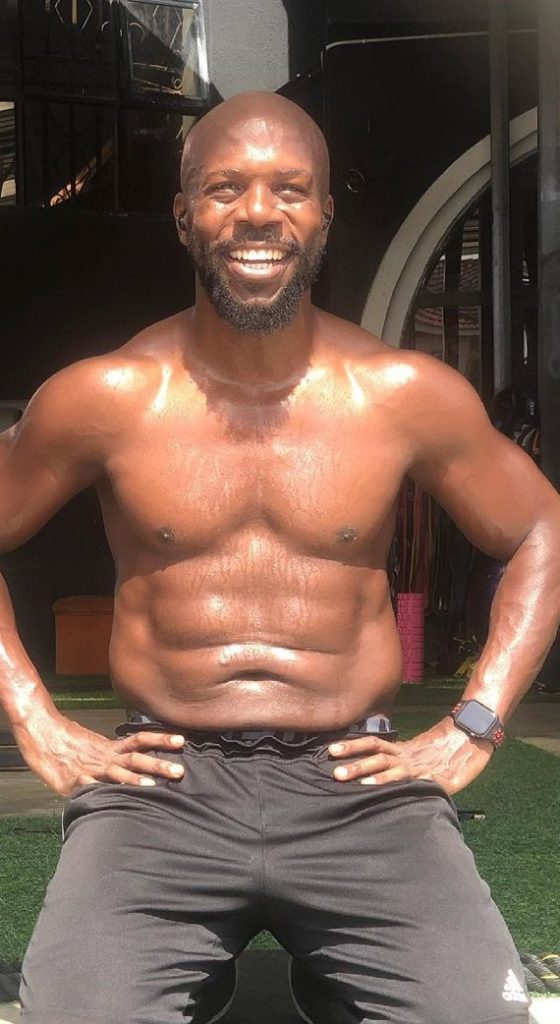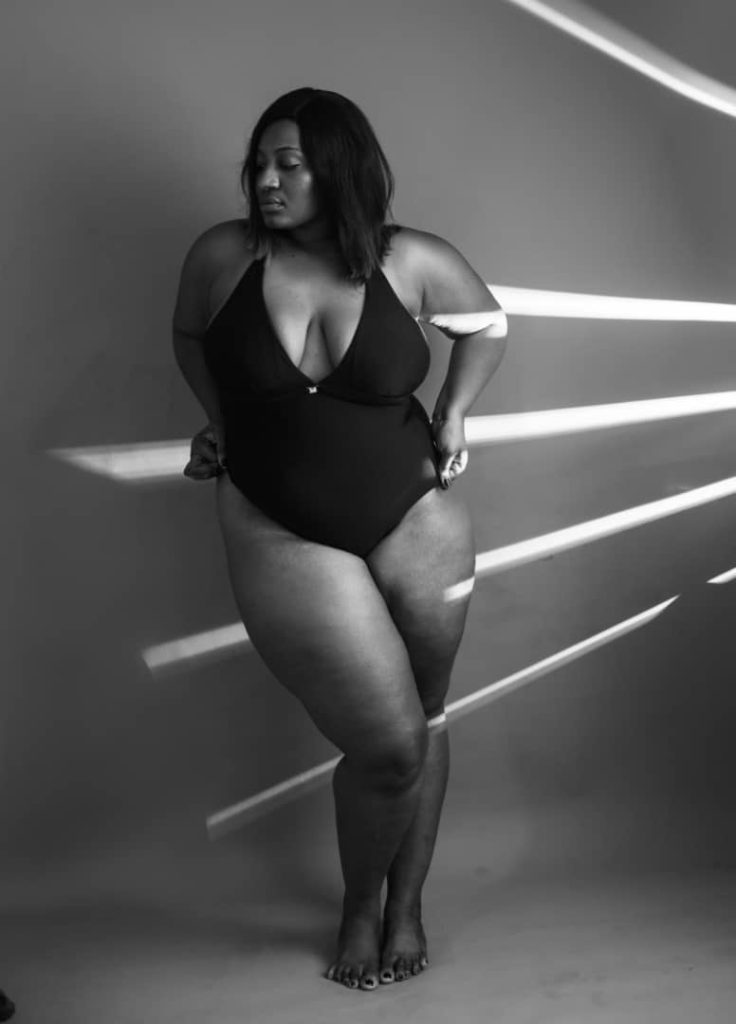Really; What is a Summer Body?
At some point as kids, we must have come across a relative or an individual that claimed to have carried us when we were kids. Their little playful pinch of the cheek is usually followed by a comment about your appearance. It’s either you’re orobo, which means fat or lepa, which connotes slim and slender. Right from a young age, you are being made aware that if you don’t have flesh on your bones, you aren’t being fed properly, or you need to update your diet. It has always been pretty black and white when it came to weight, even in progressive today. Although today’s discussion is about whether or not you need a “summer body”, we must first explore the possibility of culture putting us at a disadvantage to begin with. In most African social communities and cultural upbringings, being overweight is considered a sign of affluence and good health.
These cultural beliefs lived and passed down through generations via word of mouth or documents that have served thousands of generations up until this very one. Like something emerging and meeting an era, the internet emerging long after culture would need aeons to fully catch up and overtake countless decades of unconscious and conscious knowledge. Cultural factors might play a significant role in why some people are more likely to become obese during their lifetime. With more people being born into the internet era, it gradually becomes a conflict between the two realities, with both struggling to make their mark. It is this way with many things, and weight gain or “summer body” is no different. Take a small build kid that grew up eating only the essentials but was constantly teased for being skinny. This kid eventually becomes an adult and has the required resources provided.
It wouldn’t be unheard of for this adult to try and make up for the time lost, which might make them overweight. Those who snap out of that unhealthy trance before it’s too late understand why the “summer body” is necessary regardless of the season. But this is just one probable scenario from the countless that exist due to culture’s influence. For some, the lack thereof could explain the reason for being overweight and craving a summer body. But for other cultures, too many options might be to blame. In the United States, people eat a lot of fast food because it is cheaper, ignoring the fact that it is high in calories, fats, and refined sugars, all of which contribute to becoming obese in the long term. Fresh fruit and vegetables which are more beneficial to overall weight control are more expensive and therefore not eaten as often. People living in more economically developed societies tend to be more obese than in rural parts of the country because they are more likely to eat prepared, packaged, and processed foods. But things are slowly changing with the infiltration of foreign fast-food chains and weird eating habits in several developing countries.
NBCI estimated that there were 21 million and 12 million overweight and obese persons in the Nigerian population aged 15 years or more in 2020. That was the same year COVID imprisoned the entire human population in their homes, giving obese individuals less mobility and more food. In 2021 WHO said 90% of global COVID-19 deaths occurred in countries with a 50% obese population. However, before the pandemic, obesity was already an epidemic in Nigeria. It’s been famously said that Lagos is a city that never rests which is true, but it is also why most Nigerians have unhealthy eating habits. Mr A, who missed breakfast but had gala (sausage roll) in traffic on his way to work, will come back to eat a dinner of egusi(melon) soup and ogbono (dika) soup with garri at 10 pm. At that time, the digestive system ought to rest but can’t. This vicious cycle builds up fat in the body, leading to overweight and obesity.
Is The Summer Body For Fitness or Appearance?
The appearance of being overweight or obese by beauty and society standards is unhealthy. It poses a major risk for non-communicable diseases, such as cardiovascular disease, diabetes, hypertension, stroke and cancer. Physically they usually aren’t always the most energetic, which equates to wanting to get in the best physical shape possible and feel confident in their skin. At some point, it shifts from wanting to be fit and remaining fit to the bonus of appeal— the chiselled abs and toned frame that gets people gawking. It’s a two-for-one deal. Exercising consistently and building healthier eating habits while working through the pain makes the appearance more rewarding when you can fit into your old clothes again, or you no longer detest yourself in the mirror. A case where both things don’t lead to the same type of satisfaction is with the medical condition, anorexia. This emotional disorder is characterised by an obsessive desire to lose weight by refusing to eat.
On the one hand, someone diagnosed with anorexia would have the appearance but logically not the fitness because the body is overridden and forced to vomit. Asides from that, because this condition is tied to an emotion, they don’t feel the satisfaction of appearance. They are constantly plagued with the thought of weight gain.
In Nigeria, the fitness industry is getting bigger by the day. Although the need to maintain a healthy living has always been prevalent, social media (especially Instagram) has recently amplified it. Today, different online blogs and communities cater to support people looking to embark on their fitness and health journeys. One of the players in this space is film and TV producer, Akin Akinkugbe.

Akin Akinkugb
Known as ‘The Healthy Billionaire’ on Instagram, Akin has built a community around healthy living centred around dieting and regular fitness routines that don’t require a gym membership. When the topic of what the right body should look like was put to him, he provided an interesting insight.
He said, “Basically, I grew up very active. My mother, without being health-conscious, was health-conscious in the sense that we never really abused food, and it was normally clean. But over the years, when I got into adulthood, I began to abuse everything from alcohol to food to everything in general, so I became extremely overweight. Being overweight itself is a disease because it compromises so many things. So I was diabetic, had a fatty liver, and sleep apnea, which is extremely dangerous; I could be talking to you right now and fall asleep. I also had snoring problems, which is one of the symptoms of sleep apnea. I would wake myself up from my snoring, that’s how bad it was. I’d sleep tired and wake up tired. So I just got sick and tired of being sick and tired. Your body hints at you when you’re going off the rails, but people don’t pay attention. I always say man doesn’t die, man kills himself. 95 per cent of the diseases we have today are external. There’s nothing genetic about it, no bad luck, or it just happens, it is a lie. In fact, less than 3 per cent of the terminal diseases we have today are genetic or have happened to you by chance. Everything boils down to lifestyle. So I took the route of exercising and dieting. I’ve been through everything that anyone could want to go on on this journey until I realised that food is medicine. It’s not just there to satisfy our palette, it’s there as medicine for us. It was when I got the consciousness of what that thing meant that my life changed. I began to understand that you have so many things that are food-like products but aren’t actually food. We eat them because they taste good, as they contain sugar, which gives us a high, so we are continually returning for it. There’s no food in it. So I began that (watching what I eat), and I used to weigh 125kg, but now I weigh 75kg, and I’ve never put it back on. I started this journey in 2013; I just know what it takes to stay this way.”

Akin Akinkugbe at 125kg
For Akin, it goes beyond what the camera sees; it also matters what the x-ray can interpret. Most people only pay attention to what the body looks like on the outside and can’t be bothered by its composition. Akin dived into that mindset. He said, “it’s very holistic. When you get into the wellness consciousness, what you see on the outside is a reflection of what is inside, in most cases. There’s a syndrome called TOFI—Thin Outside Fat Inside. Many people say to me, “coach, I don’t have a weight problem; it’s just my stomach,” and I’m like, ‘that is the issue. You are fat; you just think you’re not overweight because of what society’s overweight looks like visually. If you go back to photos of people in the 70s and 80s, it was scarce to see overweight people. Even the people you thought were overweight when you were younger, when you look back now, are not overweight in today’s world. Now we eat too much rubbish, and we don’t move. Look at the uproar on okada; when I was younger, people walked to the bus stops or to get a cab. But now, nobody walks, and with all the junk food, we have a diabetes problem, 8-in-10 people have high blood pressure, and 8-in-10 women have fibroids; it’s crazy. There’s something we are not doing right. We are not doing everything that we used to do; we frown on herbs now; the sugar addiction is real.”
He continued, “People always cling onto things like “I’m big-boned”, that’s a myth; it doesn’t exist. You’re fat or obese; there’s nobody that is big-boned. The natural frame of man is lean. You have taller people, but there’s no logic to the fact that their bones are bigger.”
The concept of a summer body has gathered a lot of momentum aided by pop culture references. As aforementioned, this has often blown conversations around it out of proportion. For trolls, body-shaming has been weaponised as a malicious attempt at hurting the self-esteem of plus-sized people. Akin talked about the sensitivity of the body topic. He said, “We have become so overtly sensitive and fickle, and it is why things are going wrong. I have a huge problem with Lizzo because I have the stripe so I can talk. I was 125kg, so nobody can come to me and tell me that I’m bodyshaming. I’m not saying that you should bring somebody down without knowing a little bit of their background story or whatever it is that has kept them that weight. Because some people are genuinely struggling to shed weight, maybe birth control pills, hormonal issues, or medication, those people are the minority. Anybody who is overweight and going over and beyond to tell you that they love their body like that is a lie. I’ve been there. Look at someone like Eniola Badmus for instance; she was very aggressive before on how everyone should leave her weight alone. As soon as she begins to lose some weight with whatever it is that she’s done, she’s flaunting it. If she was happy with her previous weight, it wouldn’t be something that she’ll be happy to show off now. Your body will tell you that you’re doing something right when you lose weight.

Akin Akinkugbe (@thehealthybillionaire)
You will sleep better, your health markers are up, your brain is clearer, and you think better. One plus one is two, that is why it is called overweight; you are over the required weight, it is not healthy. However, is the ‘summer body’ a healthy body? Are you overtly doing things to have a certain body type? Take, for example, the ideal to get a six-pack. Everybody has a six-pack; you just have a layer of fat covering it. Weight ages you; it makes you old. So somebody could be 60, and their internal health age is already about 75, so they start having issues that 75-yearolds are having at 60. The aesthetics are good. I always encourage people, whenever they decide, to put in the work to have a great body, regardless of their motive. If it gets you that healthy status, I’m all for it. However, when people do crash courses, have these summer bodies and take good pictures, it is not sustainable because all of a sudden, by October or November, the pot belly is back. So the summer body should be your body all year long. You don’t want to look great in the summer and be overweight in the winter.”
To achieve the perfect body type and make sure that one stays on the healthy side of the spectrum, people have turned to science in the form of Body Mass Index. Akin, however, thinks it is not a completely reliable marker. He said, “I don’t think BMI is an accurate judge of what a healthy weight is. Don’t get me wrong, the markers are not completely wrong; it is a good guide to go. Eat real food and exercise; that is the baseline.
Now to further go into that, do not eat frequently, move your body, remove hydrogenated oils from your body, drink pure water (not referring to what Nigerians know as pure water but clean water), and avoid added sugars. There’s something called insulin resistance, which many people have; it makes you gain weight and is the foundation of other diseases. Most times, we eat because we have been told and programmed to eat at certain times. So most people eat because it is time to eat, not because they need to eat. You’ll hear people say, “it’s already 3 o’clock; I have to eat; I have not eaten since morning.” You have not eaten since morning because you are not hungry. If you’re hungry, you’ll eat. It takes being intentional to identify real hunger pangs, know when to eat, and not succumb to eating just because it’s time to eat.”
Another concept that comes up when the body its well-being is metabolism. Metabolism, by definition, is the chemical reactions in the body’s cells that change food into energy. It is a common misconception that thin people have a high metabolism rate, whereas, in plus-sized people, it is slow. Akin commented, “When people say you have a good metabolism and can eat whatever you want, it is wrong. Nobody can eat whatever they want; you will pay for it. However, metabolism is broken in people, and what slows it down is the unhealthy things we do. Nobody is born with a slow metabolism. It is slow because you have altered it to be faulty, and the only way to repair it is to get on the health wagon. You don’t have to go to the gym; going to the gym can be a luxury. There were no gyms when we were created. You were designed to move; walk every day. If you walk less than an hour a day, it is considered a health risk factor. This is science, not me talking. There are more people in the world dying from overeating than starvation. You might be malnourished, but you won’t die. Fat itself is a means of storage, an insulin source from how toxic we are. The more toxic we are, the more our body holds onto fat. That is why people do a two to three-day detox and say they’ve lost weight. They have lost weight because the body would get rid of fat it does not need. It insulates you from how toxic you are. Right now, many people have a body fat percentage of 20 to 40 per cent, and if you don’t eat for a whole month, that 40 per cent fat will feed you. Your body will go into that fat storage. What happens is nobody gets to that stage of going into the storage. The problem is we are eating way too much. Food is medicine, so we should not only make sure that we are eating the right medicine, but we should also not overdose on the medicine.”
The Daily Body-shaming Struggle Our body, religious people will tell you, is God’s temple. Whether you are from the same school of thought or not, there is no denying how extremely personal our body is—it is the vessel that houses our being. And so we try to look after it as much as we can. The conversations on how an ideal body should look are not exactly personal, though.
Last year, we expanded on the body conversations to discuss the surgical enhancement trend—it is that big of a deal. The journey to a healthy body image is usually an arduous one. Every day, we are either trying to have the ‘perfect’ body as seen in the gospel, according to Kim Kardashian or working even harder to keep it when we eventually have it. From spending hours in the gym to investing heavily in different methods such as slim tea, dieting or waist trainers, everyone is working towards the same goal: to have ‘that’ summer body.
Summer body is a cultural phenomenon that has been around for a while. It connotes what our body should look like when summer comes around, and people are on the beach as scantily clad as possible. For people who are aware, it means a type of body that is ‘Instagrammable.’ There are different inspirations for either weight loss or gain, and so even when you go to a plastic surgeon for a cosmetic procedure, they will ask you what your motivation is. Although staying fit and healthy is a key motivation for those who go through the gym route, most people also do it for the sculptural advantages that come with it— despite the pain and difficulty.

Photo by Timothy Onuchukwu
Model: Jennifer Enujiugha @jenyzest
In the increasingly digital society that we live in now, people have taken the definition of ‘picture-perfect’ to a different level. The pressure on people, especially women, to do what it takes to look like the next beauty influencer on social media is absolutely overwhelming.
American pop singer, Lizzo, has been at the forefront of the body inclusivity message since her emergence into the spotlight. Since her career took off, she has been relentlessly pushing the ‘self-love’ agenda, often to some people’s disdain. The Rumours singer, who spends a healthy amount of time in the gym as she needs to keep fit to perform as vigorously as she does, has built her whole brand aesthetics on self-love and acceptance. Despite that, she still gets body-shamed for being ‘fat.’
Body-shaming is one of the most common forms of bullying; it feels like nobody has the know-how to clamp down on it. And this also applies to people on the opposing end of the spectrum who have been abused for being too thin.

Photograph By Emmanuel Oyeleke
@emmanueloyeleke For @eopstudios
Model: Jazzy @jazzyogaga
There is no denying the happiness that comes with setting a body size goal and achieving it. Our body is ours, so we do everything in our immediate power to mould it to what we truly desire—which, let’s face it, is closer to the summer body than anything else. This is why the fitness industry exists, to help us achieve our body and health goals. For some, however, the journey to weight loss or gain is not an easy one. And because these people don’t have as much representation in the media (look around), they go through life feeling ‘less than.’
Should There Even Be A Summer Body? Bikinis and speedos or shorts are the unofficial summer uniforms because it is when people get to show some skin. The typical “summer body” is characterised by hard biceps, tight abs, moisturised skin, and toned female frames at the beach. But as time passed and how progressive the world today has become, body shaming is something anyone risks getting cancelled over. Society is now sensitive toward body types like fat and has had it replaced with plus-size or chunky. Changes like this have made more people feel more confident in their bodies, giving a new definition to “summer body.” Thick, petite or chunky now feel normal for not choosing the skinny and can feel safer expressing themselves in crowds or tight spaces. So this poses the question: What is a summer body, what happens to the body after summer and should such a term cease to exist? After all, summer is what you make of it, no?
***By Kehinde Fagbule, Tilewa Kazeem & Sophia Edisi
Cover Image Photographed By Emmanuel Oyeleke
@emmanueloyeleke For @eopstudios
Model: Jazzy @jazzyogaga






